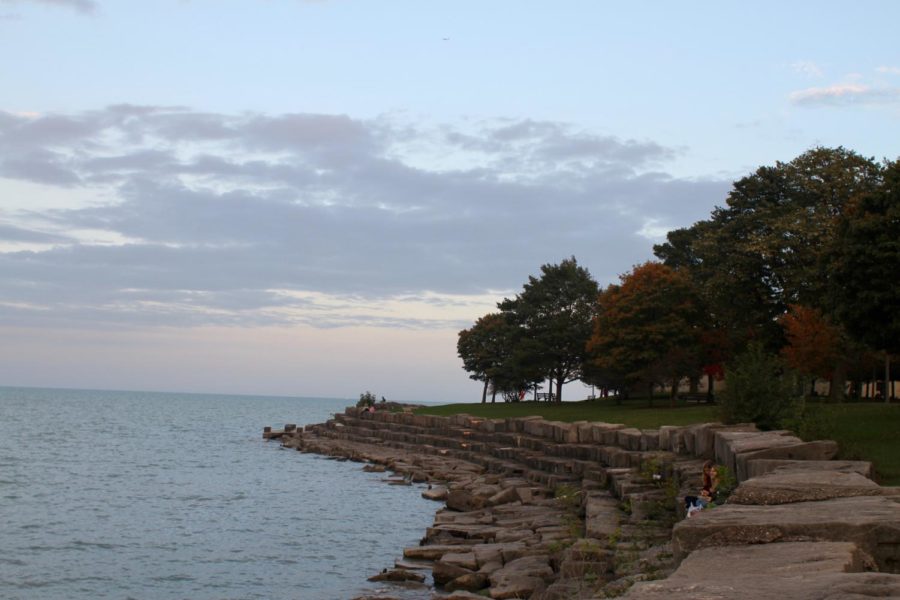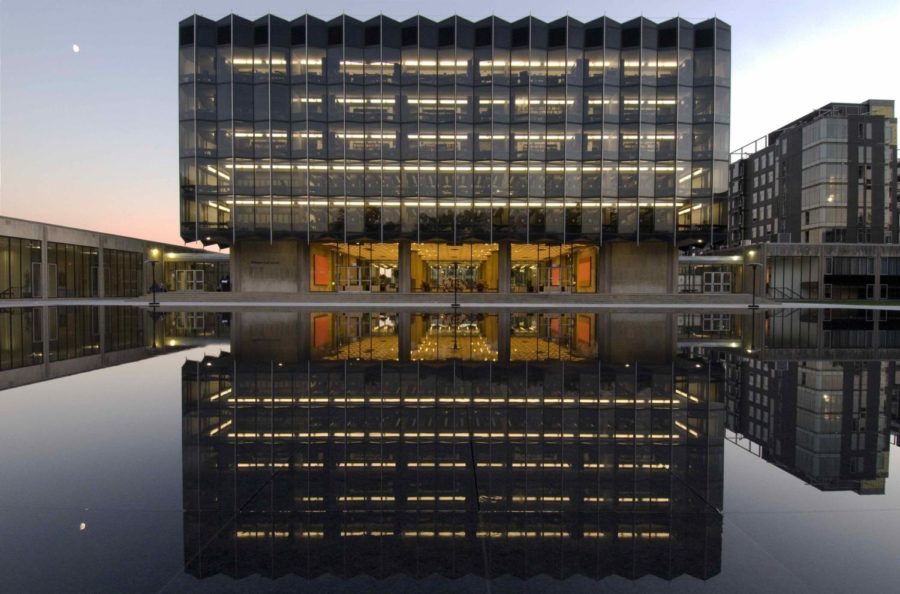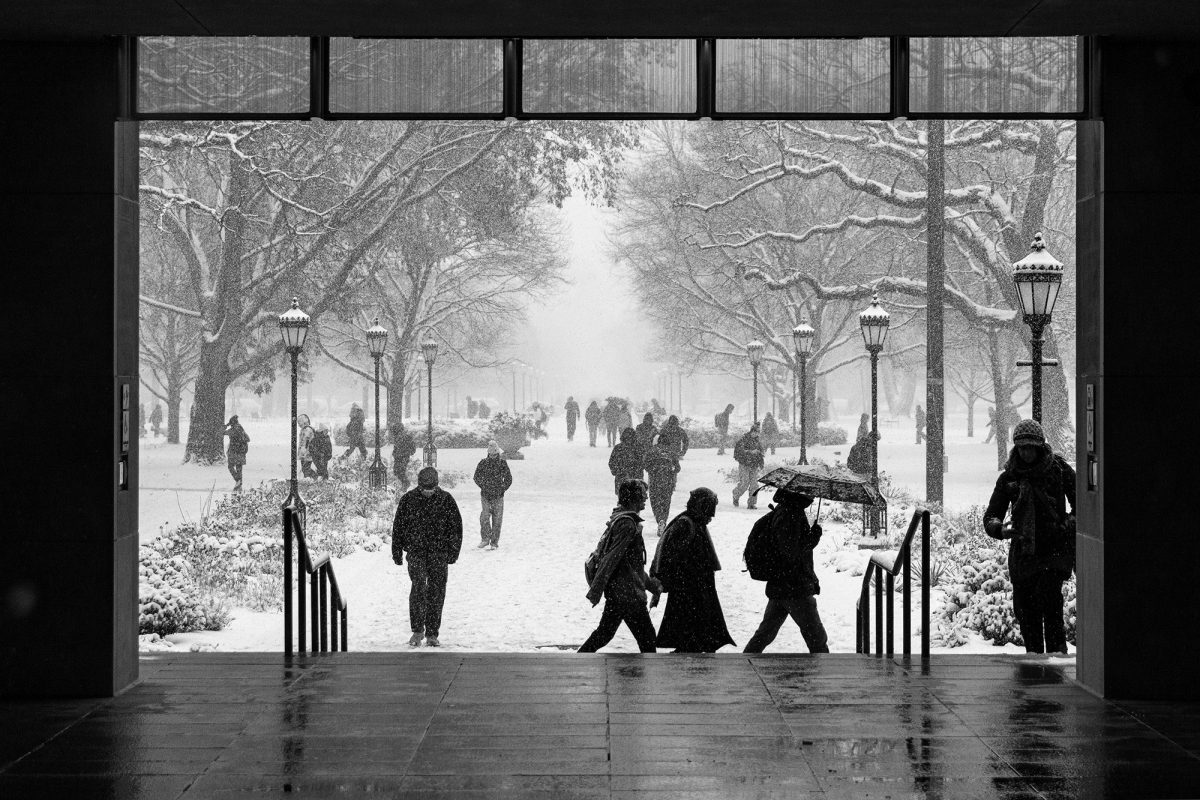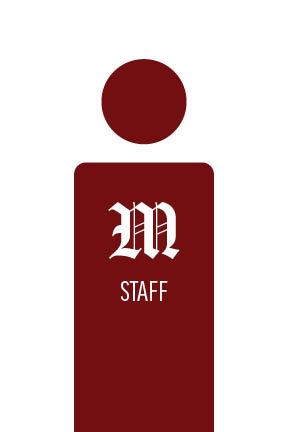“Imagine you’re a 10-year-old with a squirt gun and you’ve just found your neighborhood’s worst enemy,” John Hieronymus said to 20 people in Harold Washington Park on Saturday morning. They had gathered there, six feet apart, to learn about first aid and preparedness practices for street protesters: from dunking face bandanas in apple cider vinegar to washing out eyes if police used pepper spray or tear gas.
As protests continue in the wake of George Floyd’s death, South Side community organizations have come together to support protestors and organizing efforts over the past two weeks. The Maroon spoke to Experimental Station (E.S.), a South Side nonprofit that operates the 61st Street Farmers Market and Blackstone Bicycle Works, and Brave Space Alliance (BSA), the first Black-led and trans-led LGBTQ+ center on the South Side.
Hieronymus’s eye-washing tutorial was part of a training by Tenants United and Graduate Students United (GSU) to educate their members on best safety practices for protesting.
GSU copresident Mike van der Naald said that the training was part of GSU’s efforts to make sure their members could protest safely.
“If you’re choosing to go out, we want you to have the resources you need,” van der Naald said.
Hieronymus’s training was the second of its kind, sparked by the increasing unrest both in Hyde Park and downtown over the last two weeks. The Experimental Station had been providing food resources for a few weeks prior to the civic disturbance.
The Experimental Station started its Market Box program in late April after COVID-19 concerns shut down the farmers’ market. 400 South Side households participate, and each receives a box of fresh, locally-sourced produce every other week
The program was created in response to concerns that Link cards, which many residents use to purchase groceries through the Supplemental Nutrition Assistance Program (SNAP), cannot be used online, which put many residents in a tough spot as much grocery shopping went virtual.
Wendy Zeldin, the manager of the 61st Street Farmers Market, said the program is “a way to keep ensuring that low-income, Black neighbors in Woodlawn and around the South Side were still getting access to good food,” despite the loss of the market.
Grocery stores around the South Side were shut down last week due to protests, and Chicago Public Schools (CPS) temporarily announced discontinuation of its free children’s meal program last Monday, before sharp outrage resulted in CPS CEO Janice Jackson reinstating the program the next day.
“The South Side has been seeing a lot of protesting and organizing, which is incredible. It’s also been seeing a lot of looting, which is understandable, but also creates a lot of challenges for food access,” Zeldin said. However, “everyone’s immediate response was just to be supporting the movement in any way we can.”
When E.S. began a fundraising push to continue the Market Box program, “[p]eople responded with incredible generosity. We went from being uncertain if we could continue the program through June, to now…. We’re already talking about running it largely through August,” Zeldin said.
For Zeldin, it’s been a hectic month.
“I am trying to protest as much as I can while maintaining social distancing…and I’m spending probably 10–12 hours a day at a device of some sort, organizing Market Box and in talks with farmers and organizers specifically on the South Side,” she said.
The Brave Space Alliance (BSA), which hosts a variety of mutual aid initiatives and other programs to address housing, food, and job insecurity for LGBTQ+ individuals on the South Side, has also been doubling down to help protestors. Brittney Thomas, director of programs at the BSA, told The Maroon that the Alliance had begun offering jail support and a safe place for protestors in its Hyde Park office.
In response to the protests, Mayor Lori Lightfoot shut down buses and trains on Sunday with little notice, leaving many protestors stranded across the city, including in Hyde Park. In response, BSA began “coordinating with volunteers to help people get rides and get Ubers to and from their destinations safely,” Thomas said.
The BSA has also “been collecting and distributing jail support supplies…food, medical supplies, sunscreen, water.” Jail support often consists not only of finding out where arrested protestors have been taken, or calling jails to check in, but also of waiting outside the jail to provide support upon an individual’s release.
However, Thomas also mentioned that “some people have had difficulty accessing the Space because of heightened police presence in Hyde Park,” and that some individuals had come in with injuries they had sustained during the protest. Hyde Park has seen at least two protests, one of which was entirely peaceful and one which went smoothly until protestors and police stood off on Lake Shore Drive following the conclusion of a march.
Thomas said that BSA has received an “overwhelming” amount of support from the community. “We wouldn’t be able to do this work in the capacity we’re doing it in without the support of our volunteers and donors,” they said.
“We see that folks are tired, they’re hurt, they’re in pain, they’re in agony, and they are angry,” Thomas said. “We at Brave Space recognize that folks are suffering right now which is why we want to support them as best as we can…. We want to support the people who are out there fighting for their rights to exist, peacefully without fear of being harmed by the state.”









